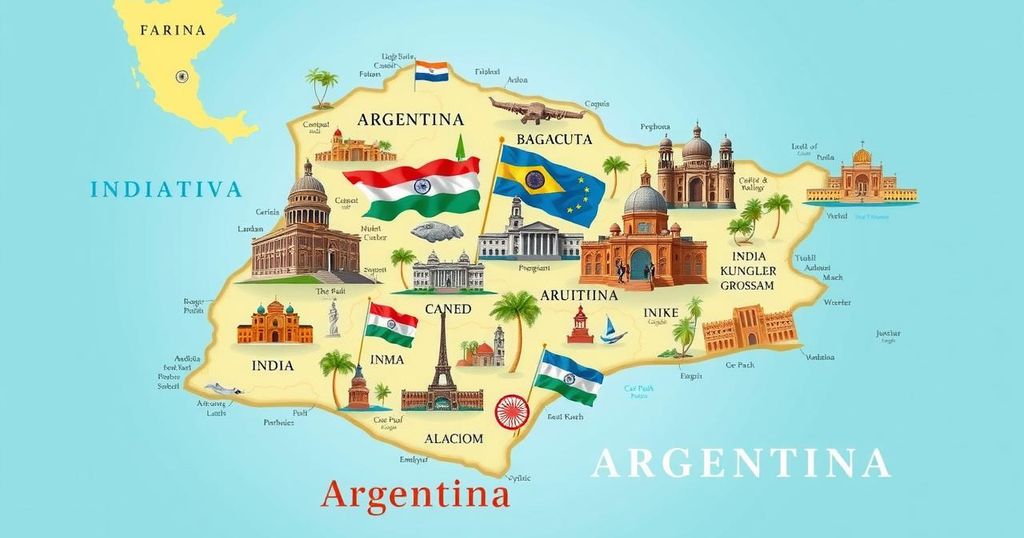Global news
AFRICA, AMERICA, AMERICAN REPUBLICAN PARTY, ARAB NEWS, ASIA, CHAD, CONFLICT, DONALD TRUMP, FORD, FOREIGN POLICY, GAZA, HEZBOLLAH, INSTITUTE, ISRAEL, MIDDLE, MIDDLE EAST, MILITARY OPERATIONS, NEWS, NORTH AMERICA, REPUBLICAN PARTY, ROBERT FORD, UNITED STATES, WHITE HOUSE
Leila Ramsay
0 Comments
The Impending Impact of Donald Trump’s Return on U.S. Foreign Policy in the Middle East
The potential return of Donald Trump to the presidency may reshape U.S. foreign policy in the Middle East, particularly concerning Israel, Palestine, and regional conflicts. Expert Robert Ford outlines the implications of Trump’s policies, suggesting limited pressure on Israel regarding Palestinian statehood and a potential reduction in foreign aid. The dynamics surrounding the administration’s stance on conflicts in Gaza, Lebanon, Syria, and relations with Iran will likely play crucial roles during this administration.
The potential return of Donald Trump to the White House following the November 5 election is poised to significantly alter the landscape of American foreign policy, especially in the Middle East. Robert Ford, a seasoned diplomat, elaborates on what can be expected from a Trump administration, particularly in light of recent conflicts in Gaza and Lebanon. Ford suggests that while Trump may push for negotiations related to the Ukraine conflict, he is less likely to exert pressure on Israel regarding the Palestinian statehood issue due to limited support within the Republican Party for a two-state solution. Furthermore, significant influencing factors may stem from Saudi leaders, emphasizing the necessity for a Palestinian state as a precondition for normalizing relations with Israel. Additionally, Ford discusses the dynamics surrounding U.S. military aid to Israel, predicting that despite Trump’s preference to reduce foreign aid expenditures in the long run, he will not impose an arms embargo on Israel. Current conflicts in Lebanon and Syria were also addressed, with Ford speculating about the potential for U.S. involvement in discussions about Lebanon, albeit with a caveat concerning Trump’s priorities. He emphasized that Trump’s policy toward Iran would likely revert to a maximum pressure strategy, reflecting divisions within the Trump administration regarding various foreign policy issues.
The evolving political landscape in the United States, particularly concerning foreign policy, has captured the attention of regional actors in the Middle East. The anticipated return of Donald Trump as President comes at a time characterized by escalating tensions and conflicts, notably in Gaza and Lebanon, exacerbated by the aftermath of Hamas’s attacks on Israel. The dynamics of U.S. relations with Israel, Palestine, and other Middle Eastern nations are crucial to understanding potential changes in policy during Trump’s new administration. Robert Ford, with extensive diplomatic experience in the region, provides insights into how Trump’s foreign policy may unfold in this complex environment.
In conclusion, Donald Trump’s re-election could bring significant shifts to U.S. foreign policy in the Middle East. While the Republican Party exhibits reluctance to advocate for a two-state solution, regional leaders, particularly in the Gulf, may play a pivotal role in influencing Trump’s approach towards Israel and Palestine. Moreover, ongoing military engagements and diplomatic challenges in Syria, Lebanon, and with Iran demonstrate the intricate nature of U.S. interests in the region. Ultimately, Trump’s administration could emerge as a blend of longstanding conservative viewpoints and a desire to minimize foreign aid expenditures, complicating the established U.S. stance in international relations.
Original Source: www.arabnews.com




Post Comment